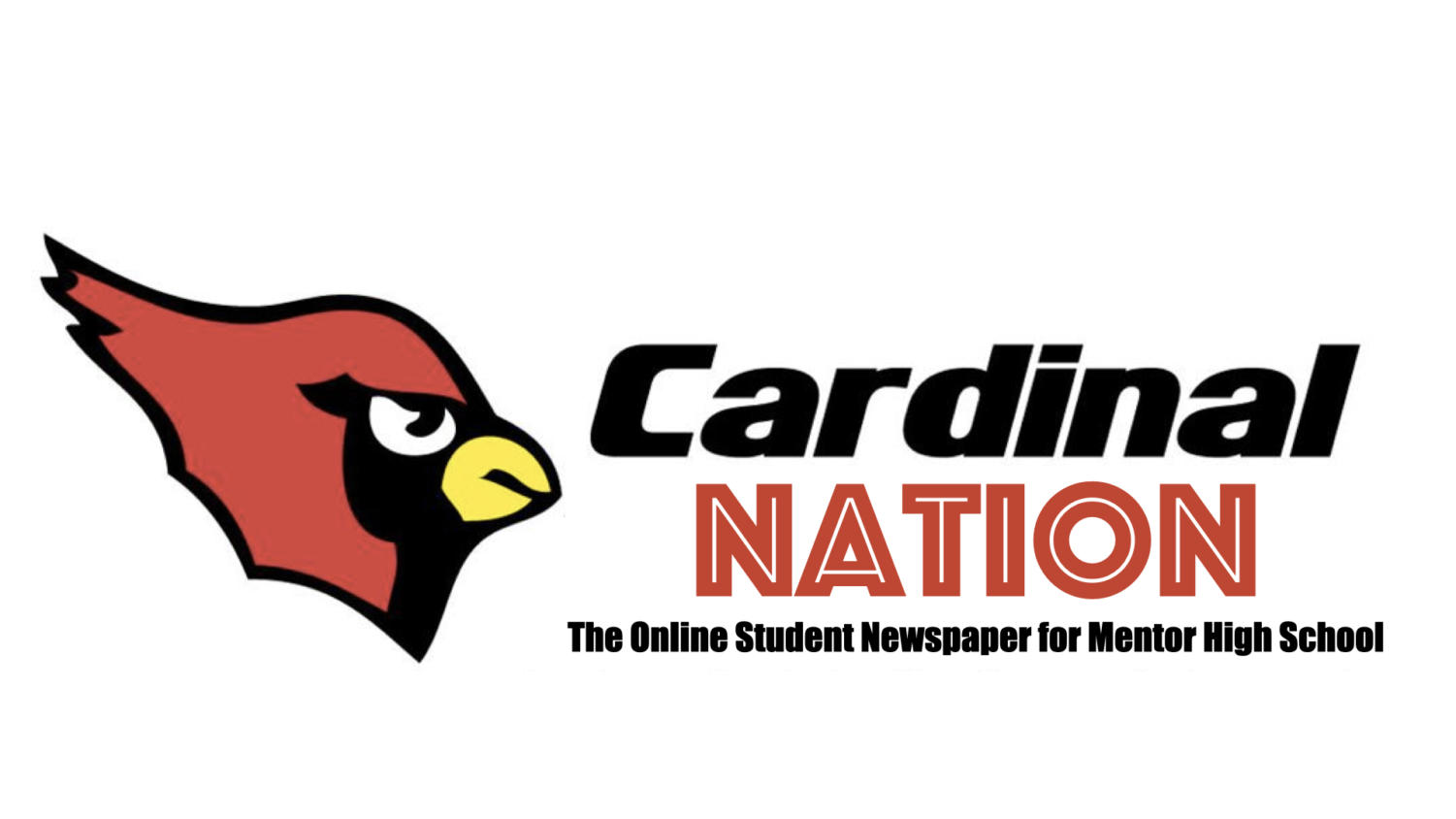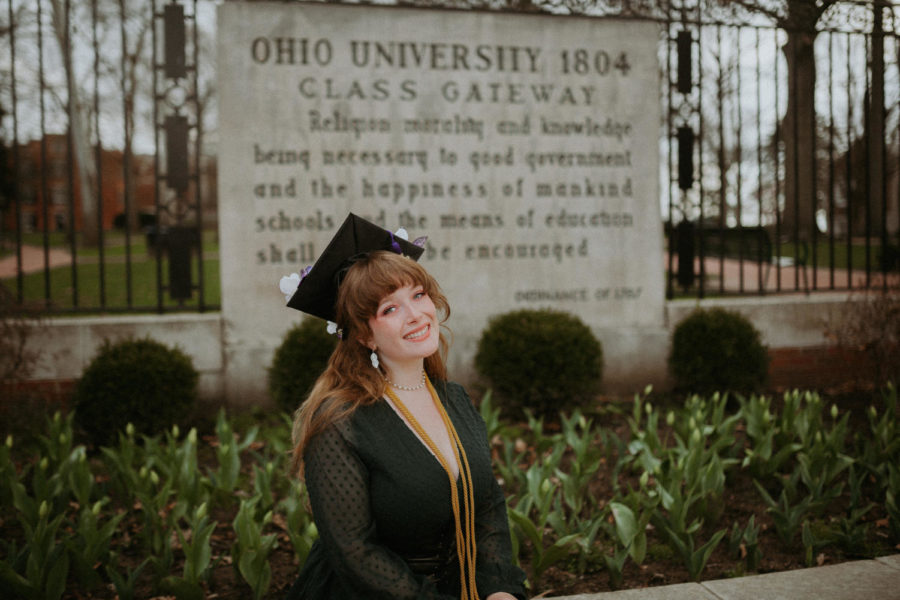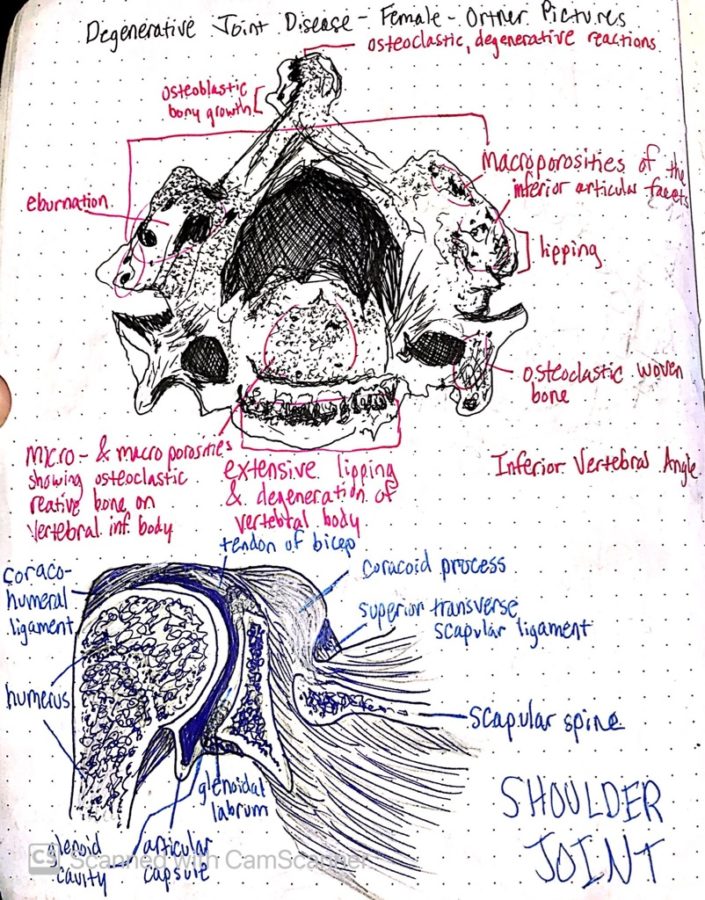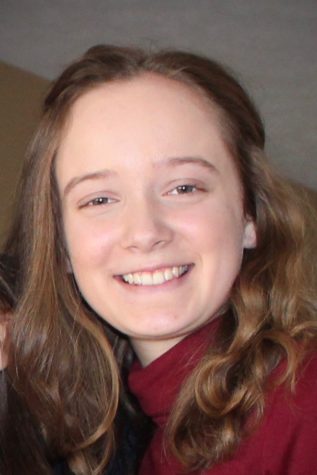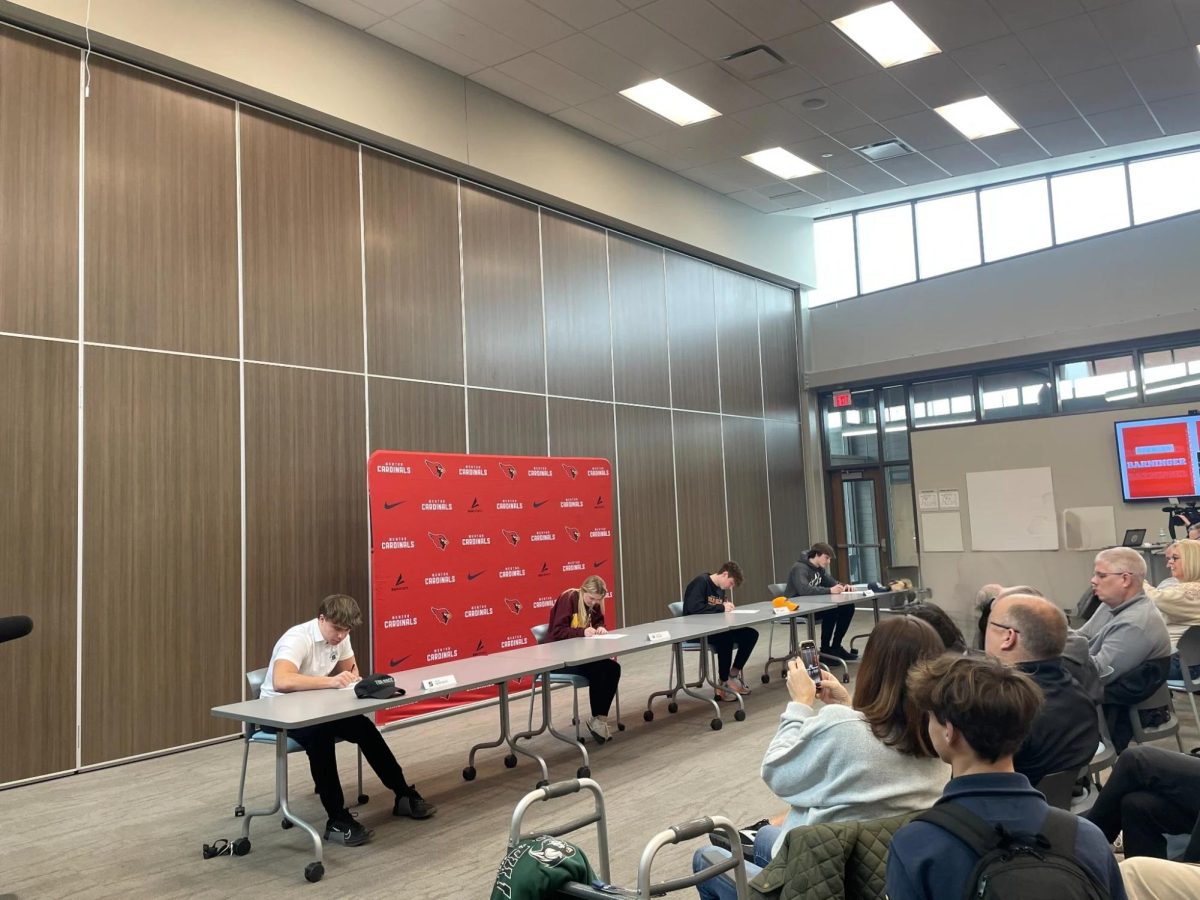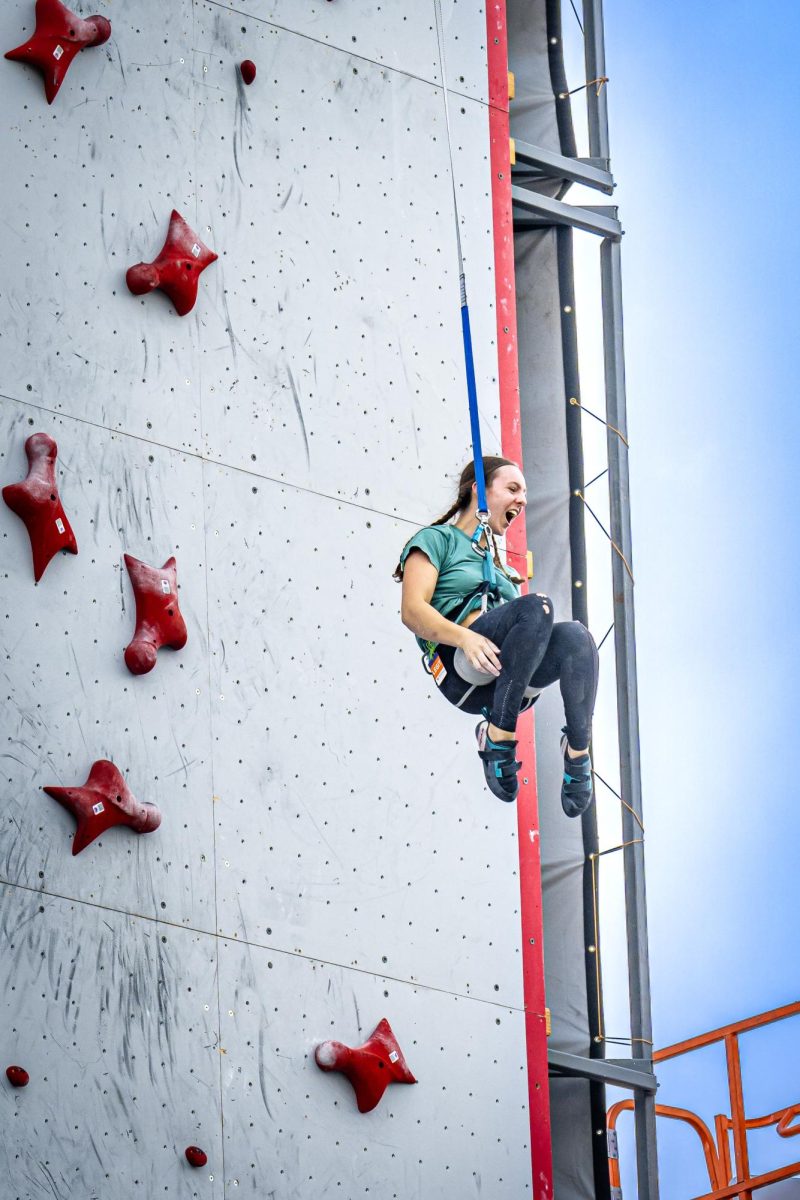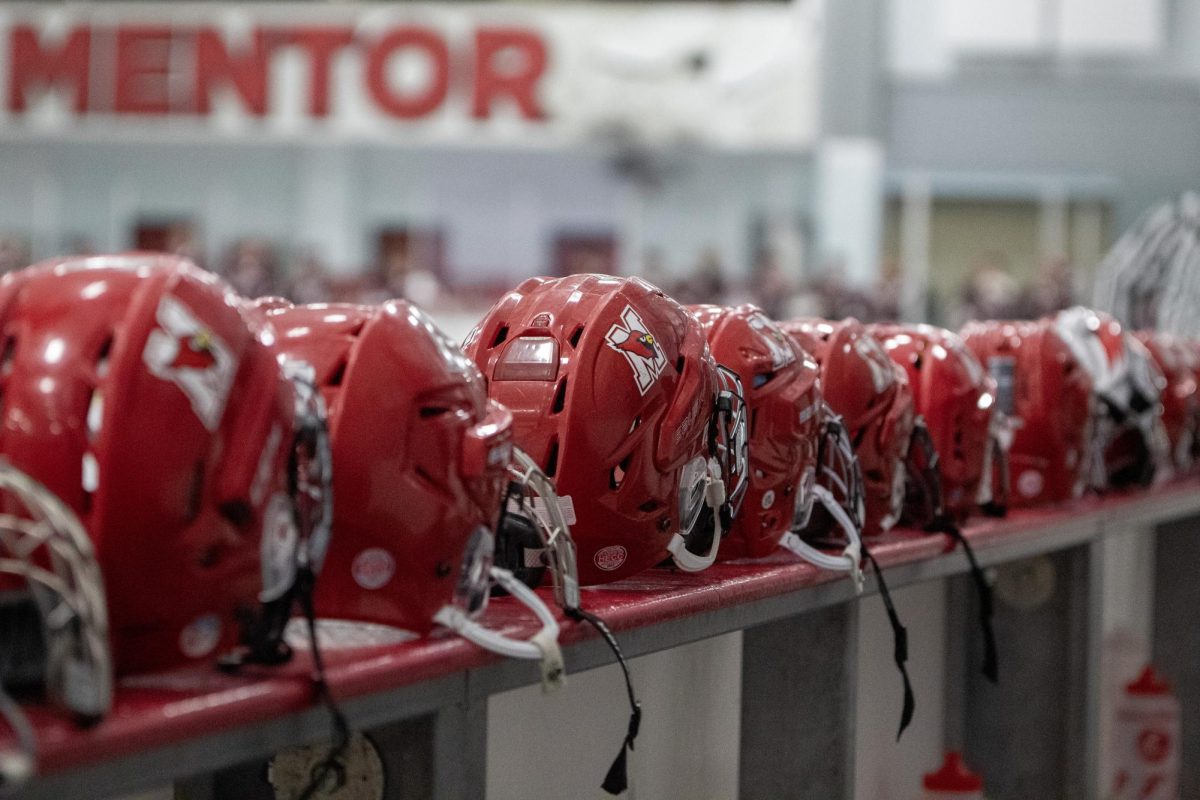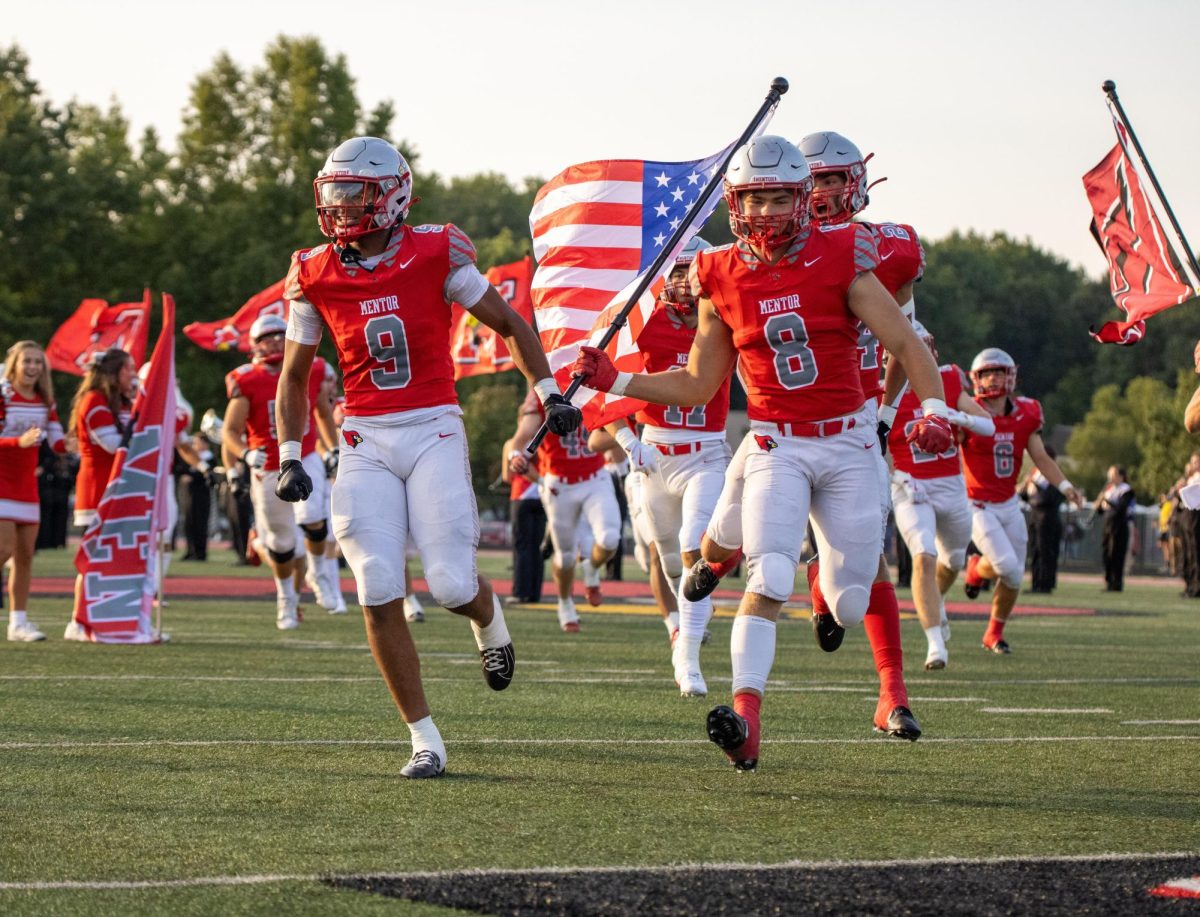Meet Mentor alum Ari Kocab: OU Anthropology Graduate (Part One)
Ari shares with Cardinal Nation her work in the field
October 12, 2022
Meet Ariana Kocab, a Mentor graduate from the Class of 2018. She took the same classes we are taking and had the same teachers we have now. But what makes Ari stand out from the crowd is the amazing success she has reached throughout her college education and the plethora of opportunities that have come her way.
After high school, Ari attended Ohio University’s Honors Tutorial College and recently graduated summa cum laude. She earned a Bachelor’s of Arts in Anthropology, a History minor, and a Museum Studies certificate—studies you don’t typically see every day. Anthropology, which is the study of the human species, is a rigorous program at OU and requires students to develop a variety of skills surrounding the topic, such as archaeology, biological anthropology or cultural anthropology, statistics, and linguistics. According to OU, an incoming freshmen must be at the top 10% of their high school class to be eligible for the program. Impressively, Ari navigated her way through this program by going above and beyond with her work and investing time into a field in which she truly loves.
Ari made Phi Beta Kappa (PBK) her junior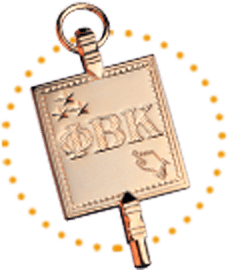 year, claiming how she didn’t “even [know] how prestigious it was until [she] posted on Facebook.” This academic honors society is the oldest of its kind in the United States, for it was founded in 1776. It is present in 290 college campus across the nation with approximately 500,000 members and focus on critical thinking and scientific inquiry. According to PBK, the society is “uniquely equipped to advocate for the value and benefits of liberal arts and sciences education.”
year, claiming how she didn’t “even [know] how prestigious it was until [she] posted on Facebook.” This academic honors society is the oldest of its kind in the United States, for it was founded in 1776. It is present in 290 college campus across the nation with approximately 500,000 members and focus on critical thinking and scientific inquiry. According to PBK, the society is “uniquely equipped to advocate for the value and benefits of liberal arts and sciences education.”
Over the summer, I was able to talk with Ari via e-mail and we were able to discuss a variety of topics from her education here at Mentor High to her plans for the future.
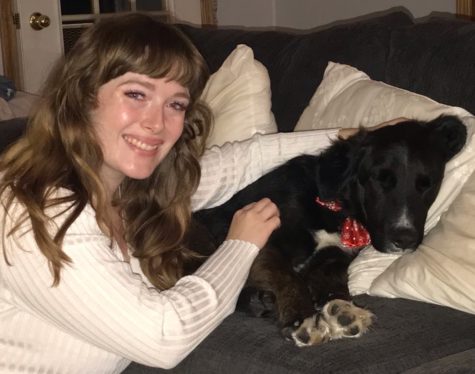
Cardinal Nation: How did you chose your major for college, and what steps did you take to prepare for college education at Mentor High?
Ari Kocab: I chose my major in college my junior year of high school. I loved history, the sciences, culture, and art so much; however, I didn’t know what kind of job included it all. That’s when I found out about anthropology, the study of humankind. History and geological phenomenas have always peaked my interested, whether it was the mythologies of the Greeks or the pressure the Earth put onto gems to make them so unique. Anthropology allows me to study things like this, in conjunction with the four sub-fields of anthropology. Mine is the biological subfield, focusing on the human body, genetics, DNA, mutations, adaptations, and the evolution of our species. The cultural subfield can look into music, art, communications, and traditions. The linguistic subfield can study ancients forms of writing and see how we got to the languages we have today. The final subfield, archaeology, studies the materials left behind by humans themselves.
Cardinal Nation: What types of opportunities does the bioarchaeological dig in Spain provide for you, and what will you be doing on that dig?
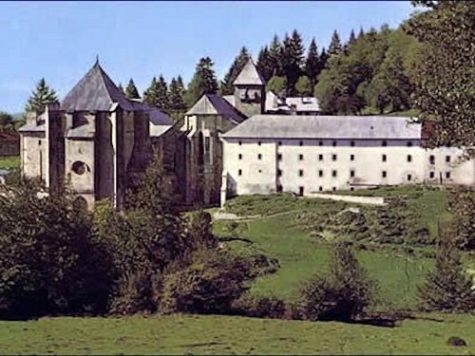
Ari Kocab: Bioarchaeology is the sub-branch to the biological field, where I study human skeletal remains in an archaeological context. I [left] for my first bioarchaeological dig June 29th and [was] be there for three weeks. International travel challenges your abilities to be responsible, timely, organized, careful, and determined when you’re on your own. It [was] my first time out of country, so I [was] nervous, but the opportunity is too life-changing to not strive for. We [are] studying the ossuary (collection of commingled human bones) in a town in Navarre, Spain that follows the Catholic pilgrimage route, the Camino de Santiago. It is also the battle and (possible) burial site for Charlemagne’s army and war hero, Roland.
This dig will teach me how to properly uncover, handle, study, and respect skeletal human remains. This will further my osteological training, which has improved greatly since I started my freshman year of college in 2018.
Cardinal Nation: What about anthropology and history fascinates you?
Ari Kocab: When I graduated from Mentor, I realized that despite the fantastic education it gave me, I was ignorant to issues that anthropology introduced me to. Women’s rights, LGBTQA+, micro-aggressions of racism, and the mental health of our world. Anthropology lets me study these and support them in real time, while also making me understand the past that shaped the present. Anthropology showed me that I can use my privilege and knowledge to help in my own way, by giving voices back to the dead. Your skeleton is a roadmap of your life and tells more about you than maybe you can remember. An existential fear of being forgotten is shared by many, but you can’t be forgotten if someone is studying exactly what made you YOU. Your biological sex, age when you died, height, cavities, healed fractures, and many other details can tell the story of the deceased. It’s the best way I can think of to give back to the world, as well as dealing with the fear of death. I look it in the face every day and feel sadness, but no longer dread. We all die, and the skeleton left behind tells our life story in fascinating ways.
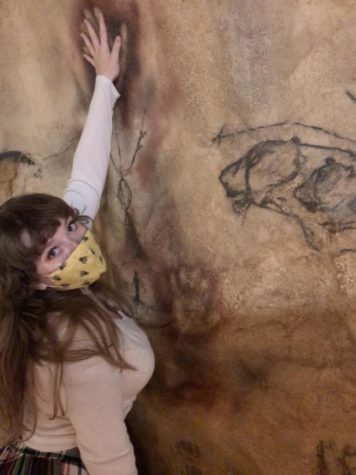
Cardinal Nation: Why have you always wanted to work for the Smithsonian?
Ari Kocab: I always wanted to work for the Smithsonian, an institution known for its worldliness and studious researchers. I want to be that researcher, so I have prepared myself through my education and extracurricular field schools. I will give a word of advice to future academics: if you’re not totally passionate about your field, try not to get a higher degree in it. It’s difficult to succeed in your career if you’re not passionate about it, and academia is a hard world. That being said, anthropologists have the best minds and are the most understanding of professors. It depends on your field and level of passion. My mother taught me you’ll never have to work a day if you love your job.
Cardinal Nation: What hobbies do you enjoy/what do you do in your free time?
Ari Kocab: I draw the bones I see in my sketchbook I’ve kept for almost four years now. It helps me study the landmarks of the bones and unique features of pathologies that riddle them. I also draw and paint in my free time to de-stress. In my free time I read fiction books, watch anime, cuddle with my dogs, hang with my loved ones, or go for night rides to see the stars. I love coffeehouses, even though I quit caffeine last year.
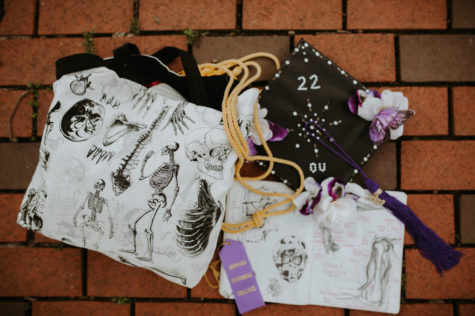
Cardinal Nation: What is your go-to motivational song?
Ari Kocab: When I go to do work, I listen to songs based on what mood I want. Motivated and need to wake up? I listen to the Mamma Mia soundtrack, Bruno Mara, Lizzo, etc. Need to concentrate? Acoustic or piano covers of pop songs. My favorite motivational song during college was “hot girl bummer” by blackbear, and yes my partner teased me for it. Currently, I would say it’s “I AM Woman.” by TRÏBE.
Curious to see how Ari’s once-in-a-lifetime trip to Spain went? Do you want to see what was uncovered during the bioarchaeological dig? Stay tuned to Cardinal Nation for an entire article documenting her experiences.
As a final thought, here is a sample of some of the work Ari has composed for her research thesis:
